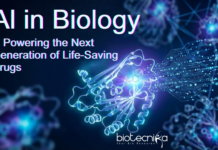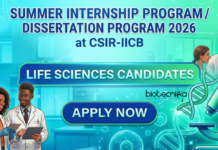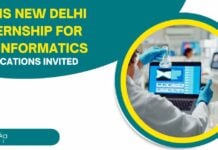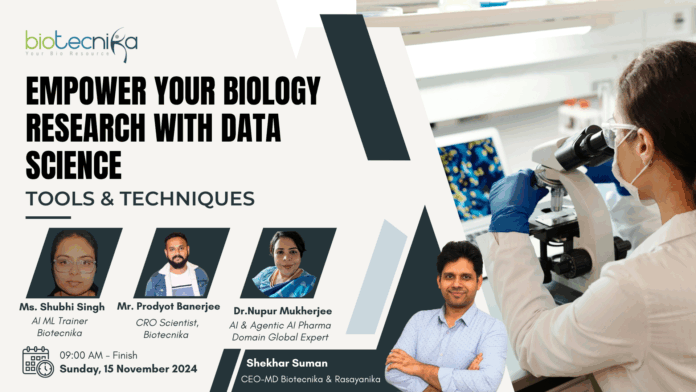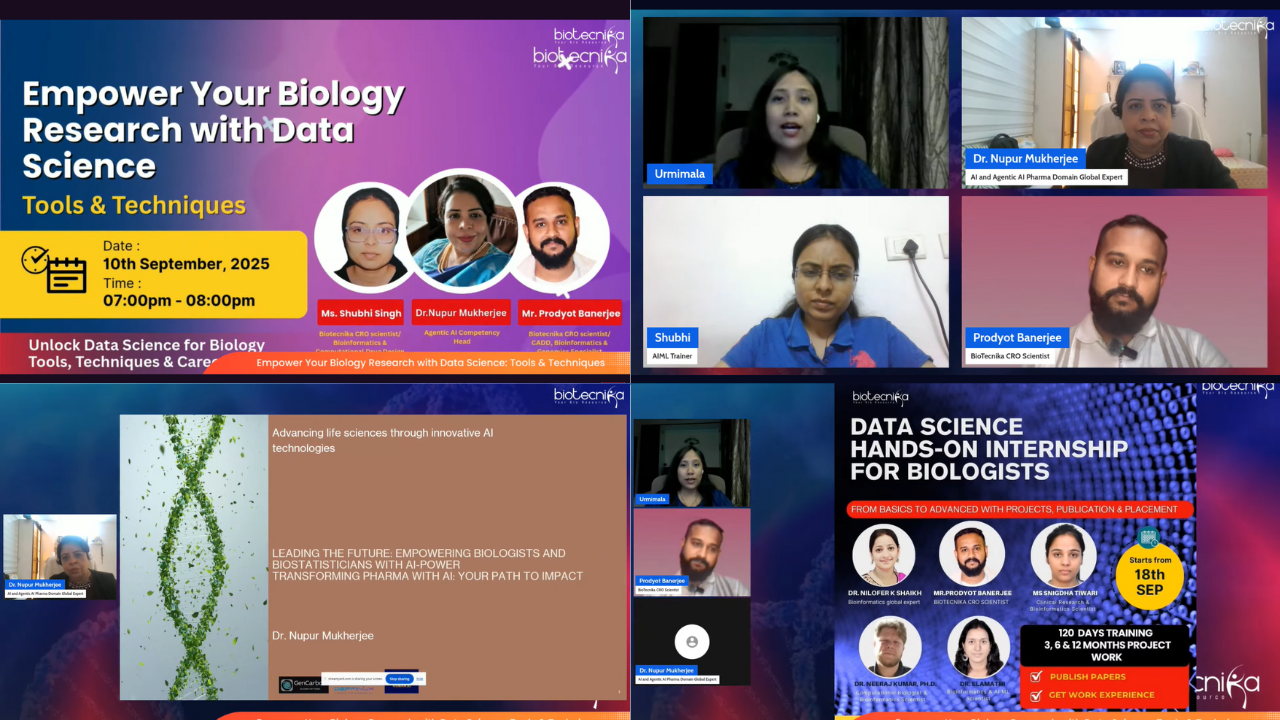Empower Your Biology Research with Data Science: Tools & Techniques Inspire a New Generation of Data-Driven Biologists
Bengaluru, Karnataka | September 11, 2025
The leading biosciences education network, Biotecnika, successfully conducted its flagship webinar “Empower Your Biology Research with Data Science: Tools & Techniques” on Wednesday, September 10, 2025. This exclusive online event provided a transformative platform for biology researchers and aspiring scientists to deepen their understanding of data-centric research methods, discover essential computational tools, and gain actionable insights for today’s data-driven scientific landscape.
Event Recap: Empowering Biologists for the Digital Age
Biology has entered an era marked by an unprecedented explosion in data generation, ranging from next-generation sequencing and proteomics datasets to clinical, omics, and environmental records. Recognizing this seismic shift, Biotecnika convened experts and practitioners to help the biologically trained community adapt, leverage cutting-edge tools, and foster innovation through interdisciplinary knowledge sharing.
The event was structured as a 60-minute interactive session conducted online via Zoom, bringing together participants from academia, industry, and higher education. The session was expertly moderated by Mrs. Urmimala, who set the tone with a compelling introduction to the rising importance of data science in biology, emphasizing why computational thinking has become non-negotiable for modern biologists.
Host and Speakers: Backgrounds and Expertise
Mrs. Urmimala served as the host of the evening, bringing professional acumen and a passion for science communication. Her welcome note contextualized the shift from traditional, experiment-driven science to a contemporary model where digital data is pivotal to every breakthrough. She provided an outline of the session, oriented attendees to the flow, and introduced each speaker with thoughtful commentary on their expertise and contributions to biological research.
Participants then heard from three core experts, each offering rich, practical content from their unique vantage points within the biosciences:
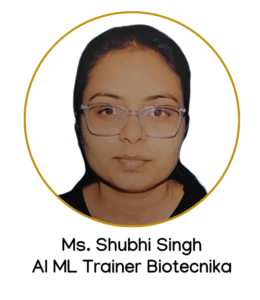
Ms. Singh dove into the transformative impact of data on biological research paradigms. She discussed:
- The migration of biology away from purely experimental work toward a domain awash with diverse, complex datasets.
- The primary types of biological data dominating research today include next-generation sequencing (NGS), proteomics, clinical datasets, multifaceted omics, and broad environmental measurements.
- Real-world problems biologists encounter include possessing substantial data but lacking the skills to use it effectively.
- Illustrative examples where data-powered research, such as disease modeling, ecological trend tracking, and CRISPR target validation, has revolutionized scientific inquiry.
- Stories of data-centric discoveries in genetics, oncology, and pharmaceutical development.
- The foundational importance of being “data-aware” before plunging into advanced tools, ensuring biologists know not just how to use resources, but why and when they are best applied.

As guest speaker, Dr. Mukherjee demystified the complex toolscape of modern biological data analytics. Her presentation covered:
- The necessity of computational tools for translating raw experimental output into meaningful scientific insights.
- Accessible and intuitive visual tools designed specifically for non-programmers, including PyMOL for molecular visualization and Cytoscape for network biology and mapping biological interactions.
- Core analytical frameworks, spotlighting Bioconductor (including DESeq2 and edgeR) for RNA-seq differential expression analysis, GEO as a key portal for accessing transcriptomic datasets, and NCBI Datasets for streamlined genome and protein data retrieval.
- Use-case scenarios from the research frontier—mini stories highlighting how researchers in cancer biology, biomarker development, and genome annotation harness these platforms to accelerate discovery.
- Straightforward strategies for selecting the right tool: mapping research objectives to features such as usability, functionality, and data compatibility.
- A clear-eyed guide to assembling a customized technology stack, enabling participants to move from experimentation to high-impact computational analysis.
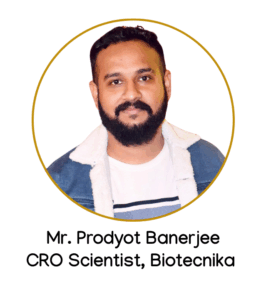
Mr. Banerjee, a proponent of inter-disciplinary scientific careers, spoke directly to biologists eager to amplify their work with powerful computational techniques:
- He articulated the imperative for data science competencies, demonstrating with concrete examples how those with data science skills are up to five times more likely to spearhead interdisciplinary research projects.
- The session highlighted various career pathways now available to biologists, including roles as analysts, bioinformaticians, research scientists, or data curation specialists.
- Mr. Banerjee mapped beginner-friendly pathways to enter the field, highlighting:
- Critical coding languages (Python for flexible scripting and machine learning, R for robust statistics and visualization),
- The essential mathematics and statistics knowledge needed, demystifying the levels required for entry,
- Pitfalls to avoid, such as diving into deep learning before grasping the diversity and nuances of biological data types.
- Importantly, he showcased accessible routes to research experience outside the traditional laboratory, working on remote projects such as biomarker identification, gene expression modeling, or drug target prediction from one’s own laptop.
- The session concluded with guidance on study design, data cleaning, algorithm selection, and extracting meaningful biological interpretations, setting up participants to pursue internships, remote research roles, or advanced study opportunities with confidence.
Key Insights from the Biology Research with Data Science Webinar
To ensure high retention and usability, speakers and organizers distilled their advice and best practices into clear, actionable takeaways:
- Data science is now foundational to modern biology, powering discoveries across disease modeling, genomics, and systems biology.
- Accessible, visual tools (such as PyMOL and Cytoscape) have democratized complex analytics, enabling non-coders to engage with sophisticated biological insights.
- Mastering basic coding (Python, R) and statistics is no longer optional; it is critical for anyone aiming to contribute meaningfully to biological research.
- Career trajectories in bio-data science are diverse and rapidly growing, opening new opportunities in academia, biotech, pharma, and research organizations.
- Hands-on experience is key: The session encouraged attendees to actively explore “dry-lab” computational tools, start small with coding, and participate in internships or guided project-based courses.
- Overcoming fear of coding is possible through incremental, structured learning with supportive programs that address both the technical and conceptual foundations of data-driven biology.
Practical Steps and Career Guidance Shared with Attendees
- Participants were advised how to map their research questions to the right analytical tools and platforms, considering factors such as project goals, user interface preferences, and compatibility with available datasets.
- Recommendations were made for building personalized, incremental learning plans to acquire coding and data analysis skills, beginning with real-world problems in gene expression, drug discovery, and environmental bioinformatics.
- The importance of project-based learning, remote collaboration, and seeking out mentorship or internship opportunities was emphasized as a way to transition smoothly from wet-lab to dry-lab research roles.
Audience Engagement and Q&A Highlights of Biology Research with Data Science Webinar
The closing section provided a platform for strong audience engagement:
- Attendees frequently inquired about starting points for those apprehensive about coding, and were reassured with resources and pragmatic advice for building confidence in programming.
- Questions about merging biology with computer science were addressed, with experts highlighting examples of successful professionals who came from pure biology backgrounds.
- Detailed explanations illustrated how even basic data science skills could enhance impact and productivity in thesis work, project planning, and research design.
- The event concluded by highlighting Biotecnika’s dual-program initiative designed for students and early-career researchers, offering stepwise immersion into coding and advanced data science in biological research.
To help participants move beyond inspiration and jump into practical and hands-on application, Biotecnika offers its Data Science Hands-On Internship for Biologists. This program is especially designed to bridge the gap between biology and computational analysis, taking learners from the very basics of coding and data handling to advanced techniques such as machine learning, big data analysis, and project-based research. With step-by-step mentorship, live projects, and opportunities for publication, the course equips biologists with the practical skills needed to analyze complex biological datasets, derive meaningful insights, and thrive in today’s data-driven life sciences industry.
About Biotecnika
Biotecnika stands as a pioneering network in biosciences education, career guidance, and industry-oriented research preparation. The organization’s mission is to make the life sciences accessible, future-ready, and adaptable by equipping professionals and students with not just theoretical knowledge but practical, hands-on data science and bioinformatics skills. Through partnerships with renowned experts, a dynamic learning platform, and a robust support system for career advancement, Biotecnika is at the forefront of shaping the next generation of bioscience leaders.





